Mike Ashley: Could Sports Direct boss be jailed in Big Ben?
- Published
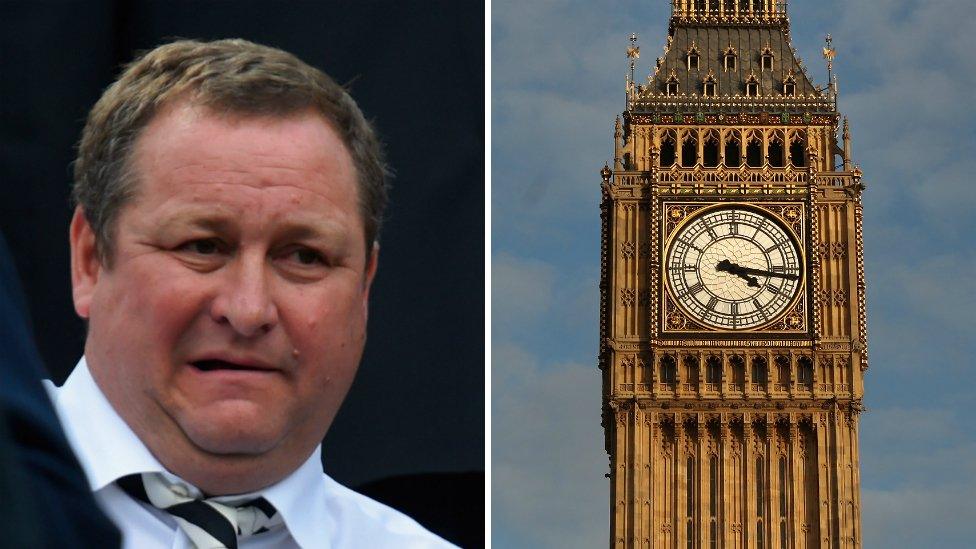
In the past people were detained in the Clock Tower of the Palace of Westminster, more commonly referred to as Big Ben, but officially renamed Elizabeth Tower in 2012
Sports Direct boss Mike Ashley has been warned he could be in contempt of Parliament if he continues to refuse to appear in front of a committee of MPs. It sounds serious - but what could actually happen to him?
For several weeks, the Business, Innovation and Skills Committee has been trying to speak to the billionaire, who also owns Newcastle United, about the treatment of his workers at Sports Direct. It follows criticism of working practices at the company's warehouse in Shirebrook, Derbyshire.
He has so far refused to attend, though, and the committee has now issued a formal summons ordering him to give evidence at Westminster on 7 June.
If he says no, what can MPs actually do to him?

Could Mike Ashley be jailed?
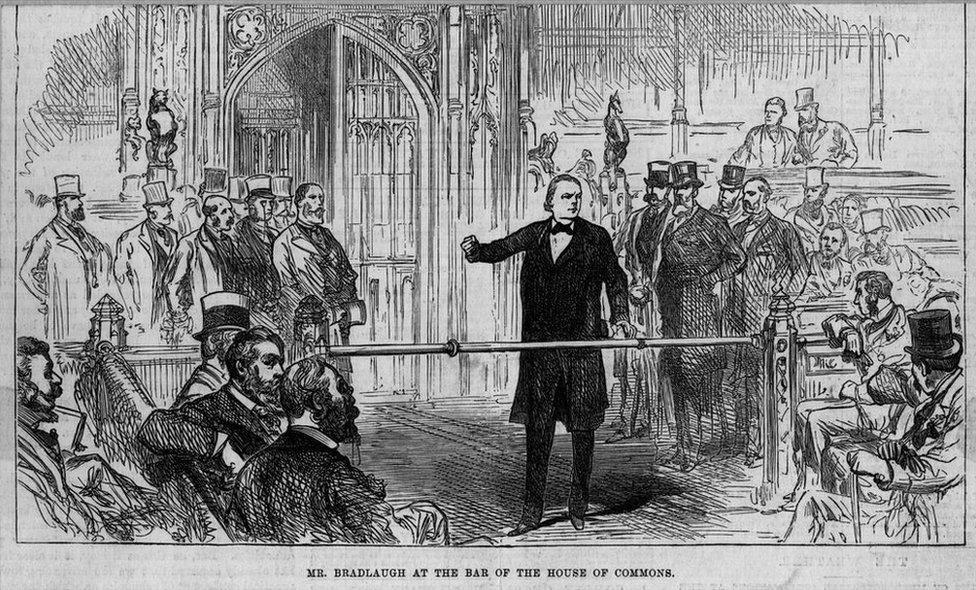
Charles Bradlaugh was detained in the Clock Tower, commonly known as Big Ben, for refusing to take the oath of allegiance
Both the House of Commons and House of Lords have the power, in theory, to imprison someone for contempt.
In the 18th and early 19th Centuries it was a regular punishment for someone to be committed to the custody of the Serjeant at Arms, external or to prison, according to a Parliamentary Privilege report, external published in 1999.
The last time the House of Commons imprisoned a non-member was in 1880, and the circumstances were strangely similar to Mr Ashley's position - a man by the name of Charles Edmund Grisell failed to attend as a witness before the Tower Hill Level Bridge Committee.
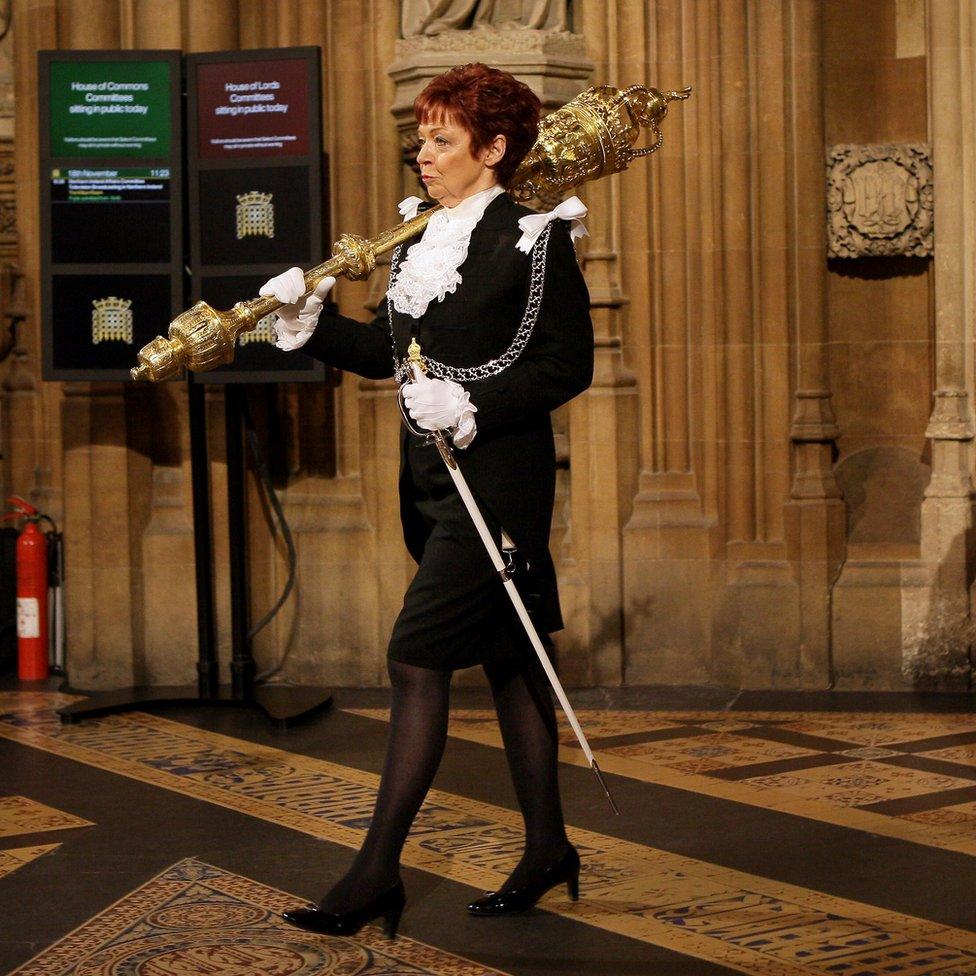
In the 18th and 19th Centuries people were punished by being committed to the custody of the Serjeant at Arms
In the past, unruly MPs could be temporarily detained in a room inside the Elizabeth Tower, commonly known as Big Ben.
The last time this happened was on 23 June 1880, when newly-elected Northampton MP Charles Bradlaugh refused to take the oath of allegiance and spent a night inside the tower. The room where he was detained is still called the Prison Room, but it is no longer used as a prison.
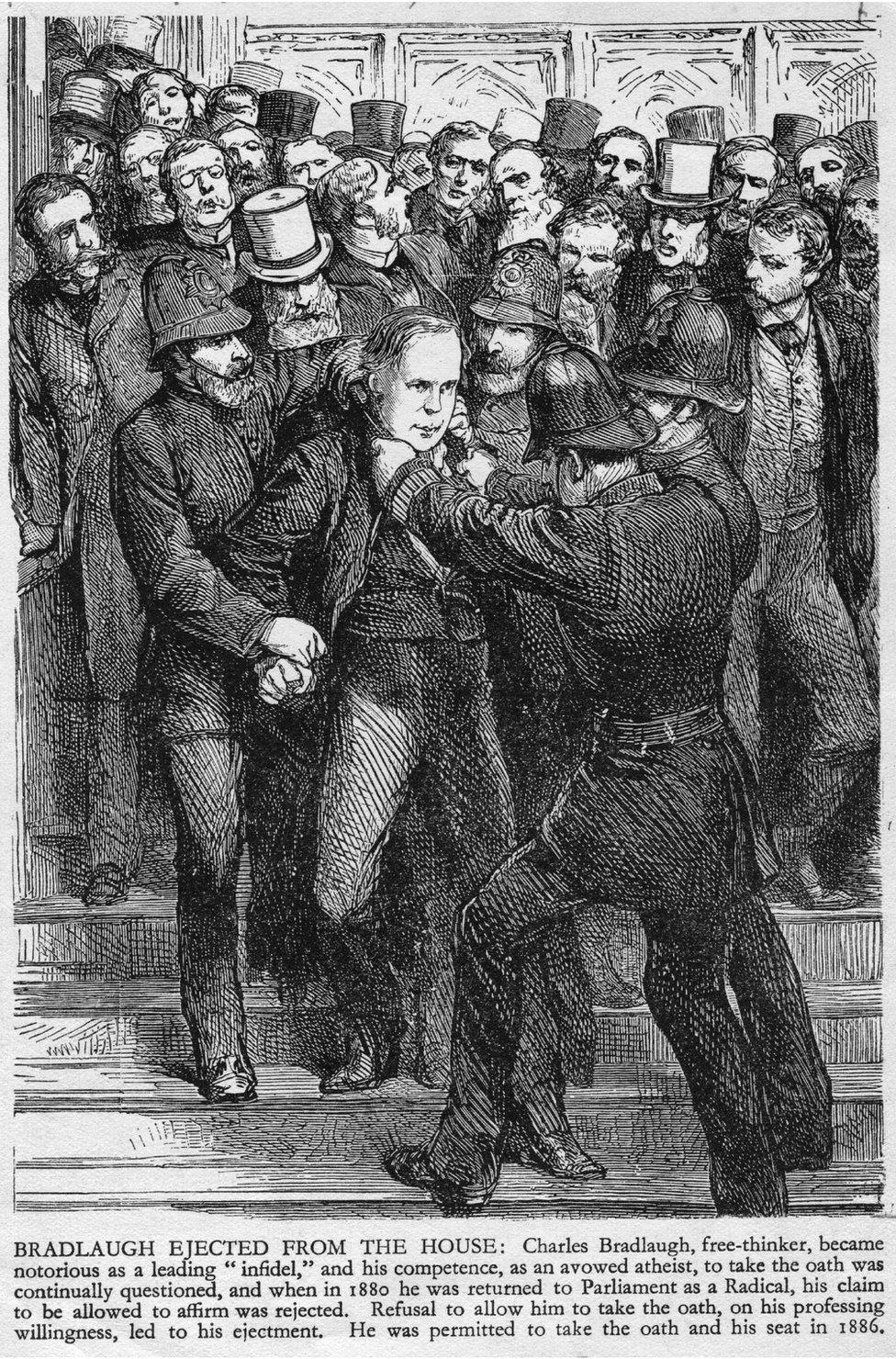
Charles Bradlaugh was the last MP to be detained for contempt of Parliament, more than 100 years ago
Could Mr Ashley be imprisoned in Big Ben? While a spokesman for the select committee did not say "no", they did acknowledge "the power to imprison has been untested in modern times".
Dr Andrew Blick, external, part of the Institute of Contemporary British History at King's College London, said imprisonment was likely to be challenged nowadays.
"There are all kinds of issues," he said. "Would someone be able to challenge this under the Human Rights Act if this was done to them?
"They won't lock him [Mike Ashley] up because they haven't done it for so long and it's not clear that they are able to do it. They might get challenged."

What is Contempt of Parliament?
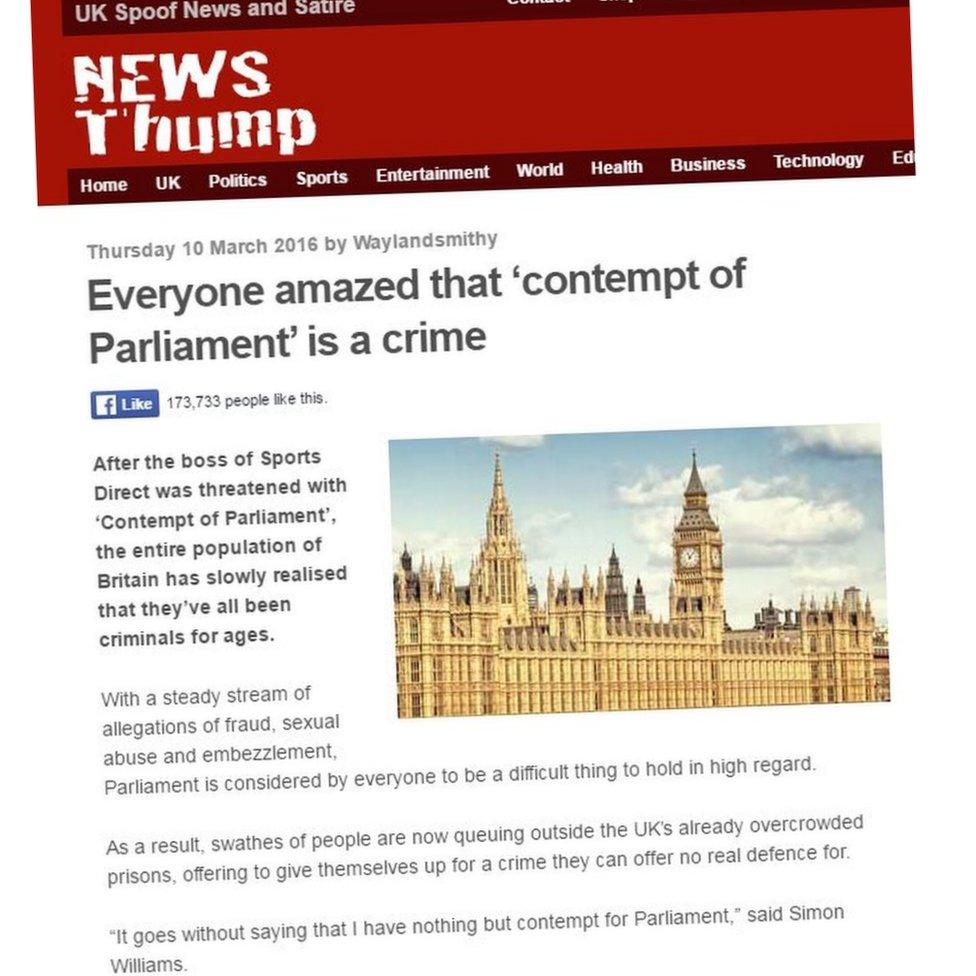
Contempt of Parliament does not mean holding it in low regard - as suggested by this spoof news story
The definition is broad, so a huge number of actions could potentially be considered to amount to a contempt of Parliament.
In fact, Erskine May - a book regarded as the Bible of parliamentary practice - notes it is "impossible" to list every potential act of contempt.
"Generally speaking, any act or omission which obstructs or impedes either House of Parliament in the performance of its functions, or which obstructs or impedes any Member or officer of such House in the discharge of his duty, or which has a tendency, directly or indirectly, to produce such results, may be treated as a contempt even though there is no precedent of the offence," says the book.
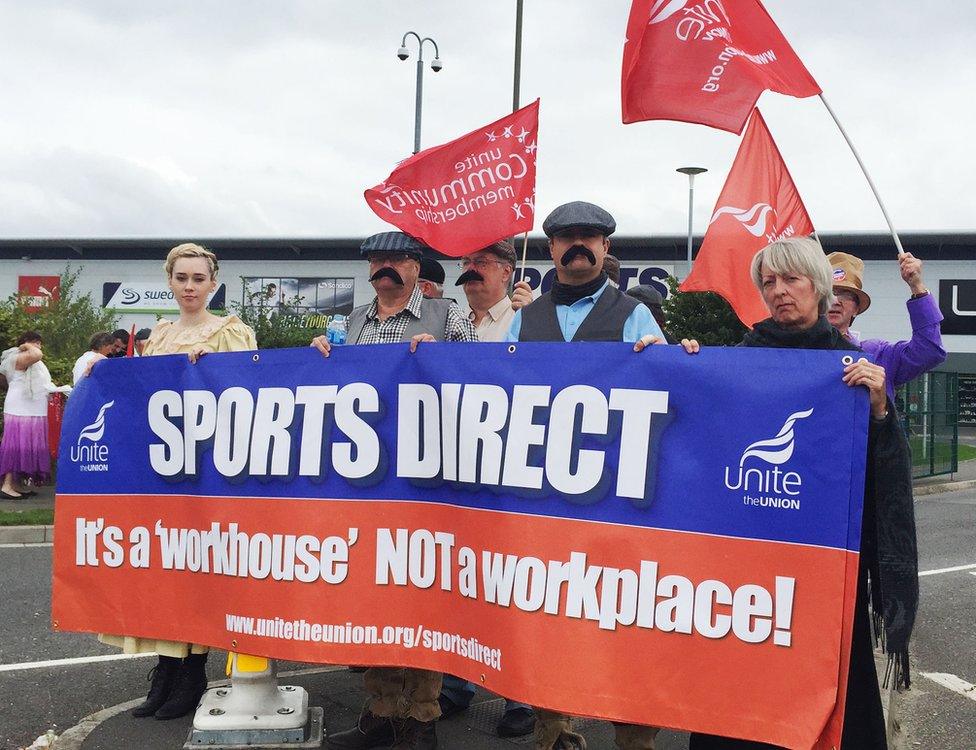
The committee wants to hear how Mr Ashley has responded to media reports about the treatment of workers at Sports Direct
Disobeying the order of a committee - which Mike Ashley has been warned about - is listed as one of the examples.
"Individuals have been held to be in contempt who did not comply with orders for their attendance made by committees with the necessary powers to send for persons," notes Erskine May.
However, Mr Ashley has not yet disobeyed the Business, Innovation and Skills Committee, because it only decided to formally issue a summons on 15 March.
If he now ignores this summons, the committee would need to raise a complaint of contempt, and the House of Commons would then decide whether a contempt had been committed, external.
Dr Blick said the power to punish for contempt rests in an ancient right known as parliamentary privilege.
"It has not been set out in a modern Act of Parliament," he said. "There has been discussion of doing that over the years but they've never got round to doing it."

Could Mike Ashley be fined?
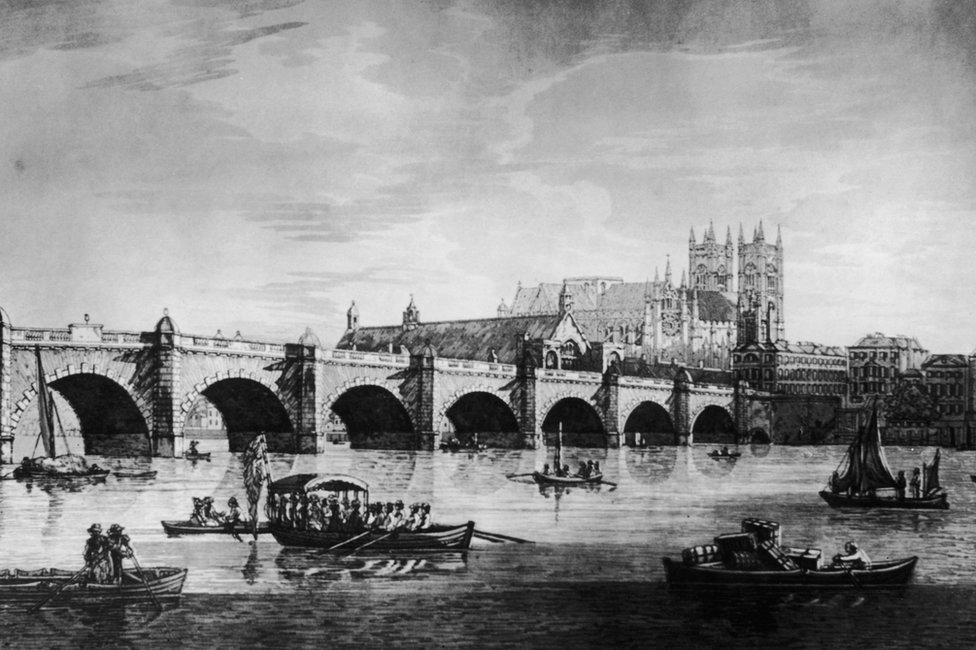
The last time the House of Commons fined someone for contempt was in 1666 - more than a hundred years before this image was created
Erskine May says the House of Lords has the power to inflict fines in its capacity as a court of record. However, it is unclear whether the House of Commons has the same status, particularly as it has not imposed a fine since 1666.
This was imposed on a man called Thomas White, who had been ordered into the custody of the Serjeant at Arms for causing Horsham MP Henry Chowne to be arrested and prevented from attending Parliament. White absconded, and was then fined £1,000, equivalent to £114,000 today.
A report in 1999 said, external the power of the House of Commons to fine people should be regarded as lapsed and recommended legislation to give the Commons a statutory power to fine.

Could Mr Ashley be told off?
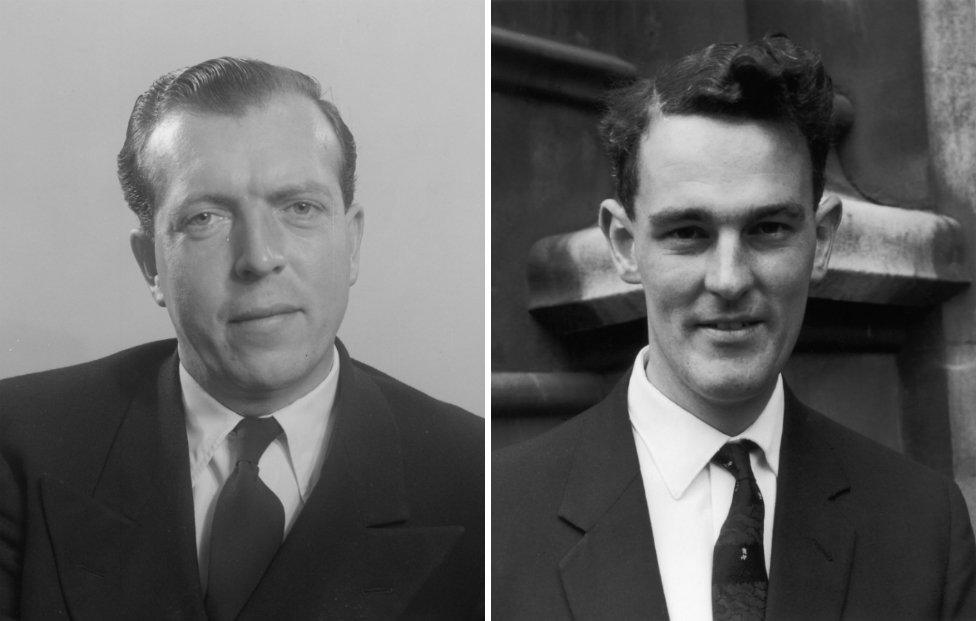
John Junor (left) was the last non-MP to be admonished for contempt of Parliament, while Tam Dalyell was the last MP to be admonished
Both MPs and non-MPs can be formally reprimanded or admonished by the Speaker of the House of Commons.
As a non-MP, Mr Ashley would be brought to the Bar of the House by the Serjeant at Arms, before being admonished by the Speaker.
The last non-MP to be admonished for contempt of Parliament was the journalist John Junor on 24 January 1957. He had written an article in the Sunday Express about petrol allocation that had cast doubt on the honour and integrity of MPs. Junor apologised and no further action was taken.
The last MP to be admonished was Tam Dalyell in 1968.
The Labour MP for West Lothian had given a copy of an unpublished report about Porton Down, the government chemical warfare centre, to the Observer newspaper.
His fellow MPs subsequently voted to reprimand him for "a breach of privilege and a gross contempt of the House".

What is likely to happen?
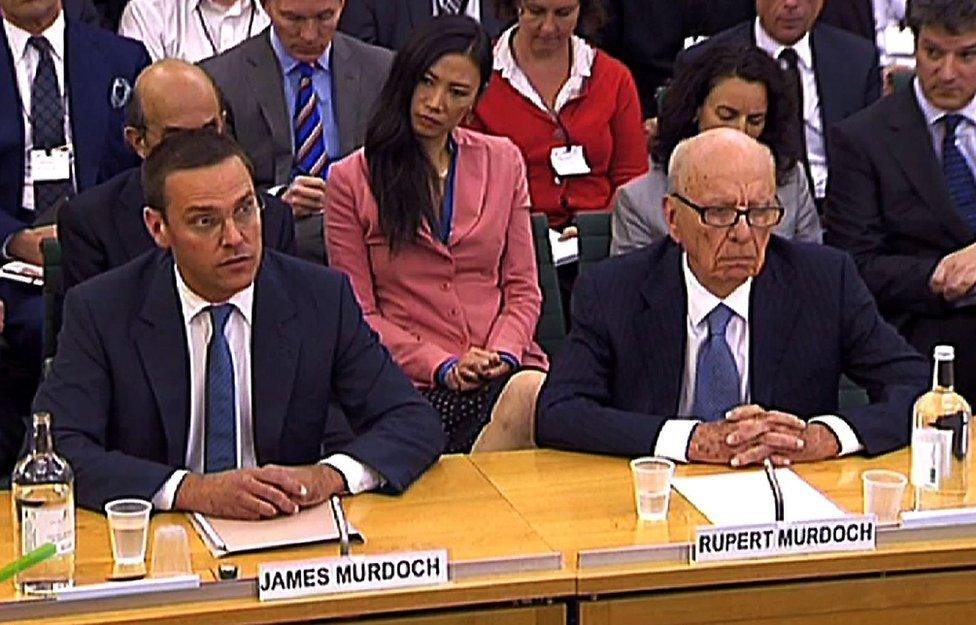
James and Rupert Murdoch answered questions on phone hacking after a committee issued summonses
Rupert and James Murdoch found themselves in a similar position to Mr Ashley in 2011, when they initially declined an invitation to attend a select committee to answer questions over phone hacking.
They then agreed to appear after the Culture, Media and Sport committee issued summonses. These were the first to be issued by a parliamentary select committee for almost 20 years, since the sons of the late newspaper tycoon Robert Maxwell were ordered to appear in 1992.
Mark Stuart, an assistant professor in politics at the University of Nottingham, said pressure from committees was usually enough to make people give evidence.
"Technically they could bring in the Serjeant at Arms as he or she is known and they could call the person to appear because they could be found in contempt of Parliament," he said.
"But because that power hasn't been used since the time of Charles Dickens there is great doubt over whether Parliament actually wants to use it, because what would happen is the courts could be dragged in.
"They could have the European Court of Human Rights brought in to review what Parliament has done, so Parliament likes to bring these people in through public pressure, just as the Murdochs were."
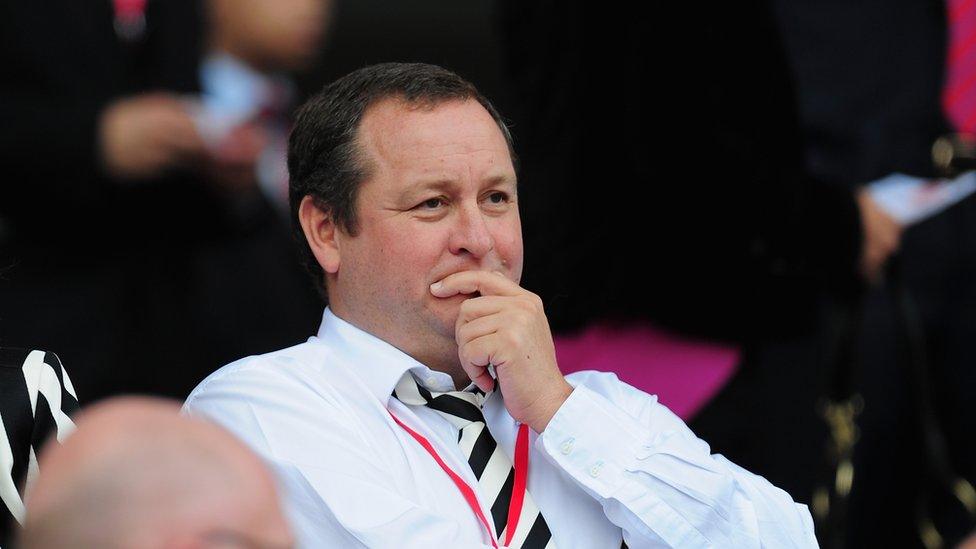
The committee has now decided to issue a summons requiring Mr Ashley to give evidence to it on 7 June
He predicts that Mr Ashley will give in, just as Rupert and James Murdoch did.
"Mike Ashley is just playing games at the moment," he said. "It will be really bad for his company if he doesn't attend."
Dr Blick predicts that "some kind of mutual agreement" will be reached.
"I think he [Mike Ashley] and people advising him will think it's probably better not to be seen to be in a battle with Parliament, the most important democratic body in the country," he said.
"My guess is that some kind of mutual agreement is reached as did happen with the Murdochs in the end."
- Published15 March 2016

- Published11 March 2016

- Published10 March 2016
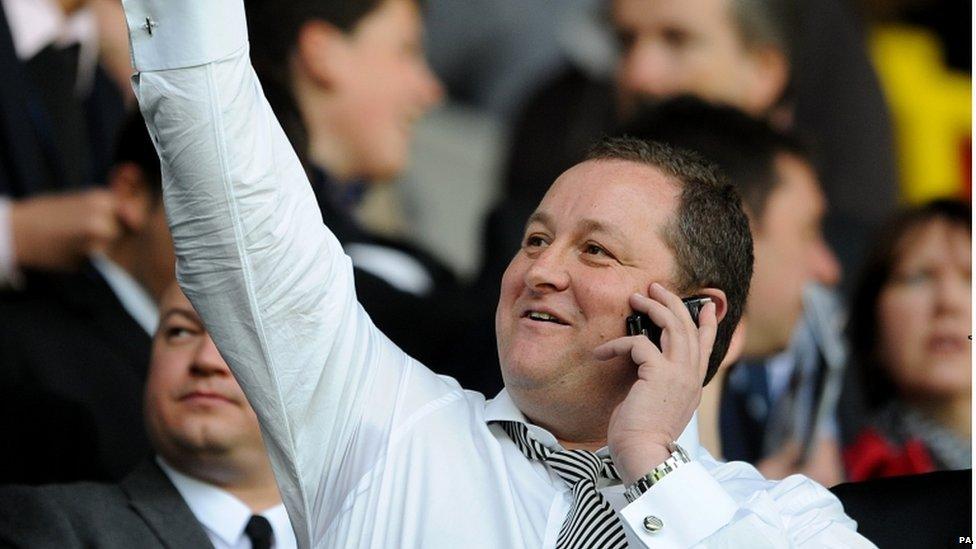
- Published5 October 2015
